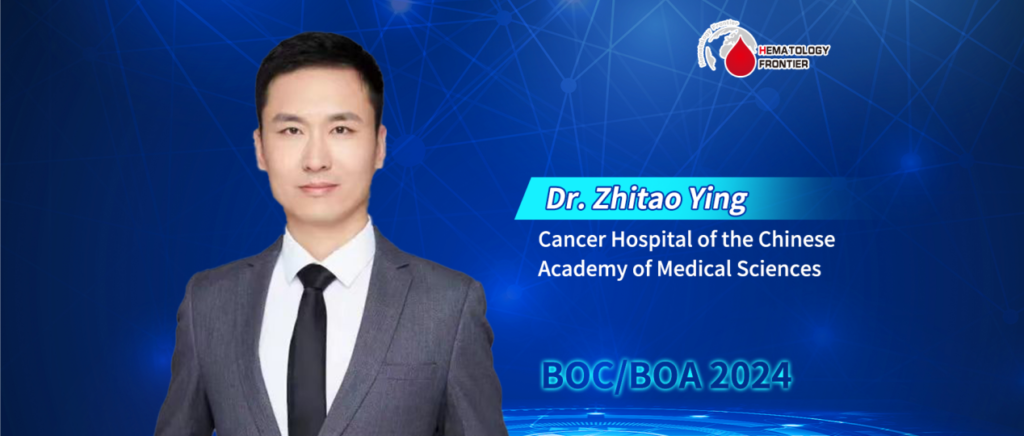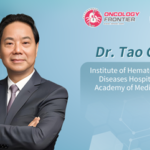
Editor's Note: Since 2015, the Chinese Society of Clinical Oncology (CSCO) has been dedicated to presenting annual reports on the progress of clinical oncology in China, under the theme "International Standards, Chinese Characteristics, Learning and Innovation." At the recent "2024 Annual Progress in Chinese Clinical Oncology Conference (BOC) and Best of ASCO 2024 China," the latest "Annual Advances in Chinese Clinical Oncology 2023" report was officially released. At this conference, Dr. Zhitao Ying from the Cancer Institute & Hospital Chinese Academy of Medical Sciences presented a detailed report on the advancements in lymphoma research in China for 2023.The expert group recommended three key research advancements in the field of lymphoma in China for 2023:
1. Molecular Subtype-Based R-CHOP-X Treatment for DLBCL: GUIDANCE-01 Phase II Randomized Clinical Trial Results
Professor Weili Zhao’s team from Ruijin Hospital, Shanghai Jiao Tong University School of Medicine, published in Cancer Cell the GUIDANCE-01 (NCT04025593) study, a prospective, randomized phase II clinical trial focused on evaluating gene subtype-guided therapy for newly diagnosed intermediate/high-risk DLBCL patients. The CR rate for patients treated with the R-CHOP-X regimen reached 88%, significantly higher than the 66% in the R-CHOP group (P=0.003). Additionally, the overall response rates were 92% and 73% for the R-CHOP-X and R-CHOP groups, respectively, showing statistical superiority for R-CHOP-X (P=0.005). Two-year follow-up revealed progression-free survival and overall survival rates of 88% versus 63% (P<0.001) and 94% versus 77% (P=0.001) in favor of the R-CHOP-X group. This study highlights the potential of the R-CHOP-X regimen in enhancing efficacy and ensuring safety, confirming the effectiveness of biomarker-based personalized therapy targeting gene and microenvironment variations in newly diagnosed DLBCL patients.
2. Phase II Multicenter, Single-Arm Clinical Study of Sugemalimab in Relapsed or Refractory ENKTL Patients (GEMSTONE-201)
Led by Professor Huiqiang Huang from Sun Yat-sen University Cancer Center, the GEMSTONE-201 study results were published in the Journal of Clinical Oncology. This study aimed to evaluate the efficacy and safety of the anti-PD-L1 monoclonal antibody sugemalimab in treating relapsed or refractory extranodal NK/T-cell lymphoma (R/R ENKTL). By February 23, 2022, 80 patients were enrolled, with a median follow-up of 18.7 months. The IRRC-assessed ORR reached 44.9% (95% CI: 33.6-56.6), with 35.9% achieving CR and 9.0% achieving PR. The 12-month duration of response rate was 82.5% (95% CI: 62.0-92.6). Investigator-assessed ORR was 45.6% (95% CI: 34.3-57.2), with 30.4% achieving CR. Most treatment-related adverse events were grade 1-2, but 40.0% of patients reported at least one grade 3 or higher adverse event. The study shows that sugemalimab has significant and durable anti-tumor effects in R/R ENKTL patients, with overall good tolerance and expected safety, providing a new treatment option for this patient population.
3. Phase I Dose-Escalation and Expansion Study of Selective JAK1 Inhibitor Golidocitinib for Relapsed or Refractory Peripheral T-Cell Lymphoma
A study by Professors Jun Zhu and Yuqin Song from Peking University Cancer Hospital published an international multicenter clinical trial evaluating the safety and anti-tumor efficacy of the selective JAK1 inhibitor golidocitinib in treating relapsed or refractory peripheral T-cell lymphoma (PTCL). Fifty-one patients were enrolled and treated with golidocitinib at doses of 150 mg or 250 mg daily. The study found that golidocitinib was well-tolerated at both doses, though severe adverse events and dose adjustments were more common in the 250 mg group. The ORR was 39.2%, with a CR rate of 21.6%. Median duration of response and progression-free survival were 8.0 and 3.3 months, respectively, at follow-ups of 14.7 and 15.9 months. The research team ultimately identified 150 mg daily as the recommended phase 2 dose (RP2D). As an oral formulation, golidocitinib exhibited satisfactory pharmacokinetic properties.
Reflecting on 2023, the field of lymphoma treatment in China has achieved remarkable clinical research results, garnering significant attention and recognition in the international medical community. Chinese clinical scientists, backed by robust data, have presented innovative treatment strategies and practical approaches to the world. These innovations not only accelerate the development of lymphoma treatment in China but also promote the widespread clinical application of new drugs.
Looking ahead, as research continues to deepen and medical technology evolves, more innovative clinical research results will be discovered and published. We hope these advancements will translate into more precise and effective treatment methods, providing hope for lymphoma patients, extending survival, and improving quality of life. This progress contributes to the grand vision of building a “Healthy China.”
Dr. Zhitao Ying
Chief Physician, MD National Cancer Center/Cancer Hospital, Chinese Academy of Medical Sciences Director of the Lymphoma/Head and Neck Tumor Ward Vice Chairman of the Cell Immunotherapy Professional Committee, Chinese Society for the Promotion of Human Health Science and Technology Standing Member of the Youth Expert Committee, Chinese Society of Clinical Oncology (CSCO) Standing Member of the Individualized Treatment Committee for Tumor Heterogeneity, Chinese Anti-Cancer Association Youth Member of the Hematologic Oncology Committee, Chinese Anti-Cancer Association Member of the Lymphoma Group, Chinese Society of Geriatric Hematology Member of the Drug Clinical Research and Evaluation Professional Committee, Chinese Association of Geriatric Health Care 11th Youth Committee Member, Chinese Medical Association Oncology Branch Youth Deputy Editor, JCO-Blood Chinese Edition Cell and Immunotherapy Editorial Board Member, Blood and Genomics Specializing in the diagnosis and treatment of malignant lymphomas and cellular immunotherapy


